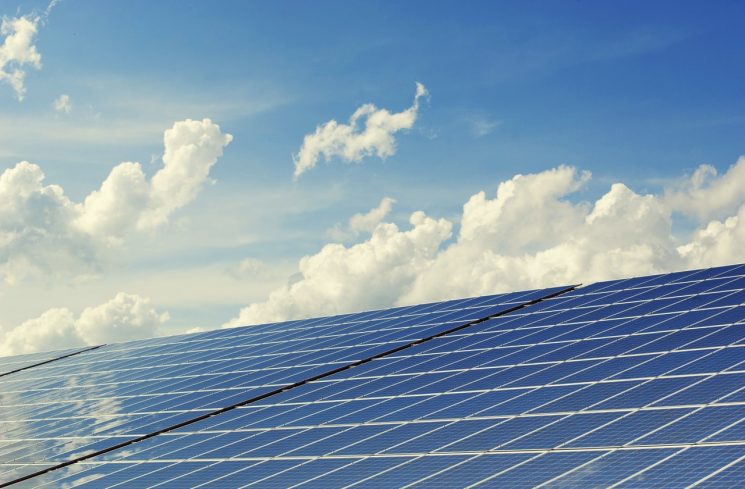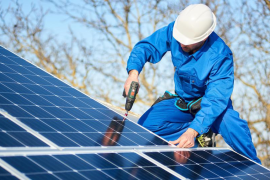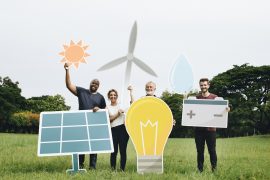Solar farms may be a response to insufficient electrical production in Africa. But financing these projects is still difficult for these countries where the economy remains fragile. In a time where environmental problems are getting bigger in our industrialised societies, Europe and Africa have a similar problem : the difficulty to provide enough power to satisfy the needs of populations. When in Europe it is due to over-consumption in winter, in Africa it is due to underproduction …
Electricity, something missing in Africa
In Sub-Saharan Africa less than 10% of the 600 millions people have access to electricity. When electricity becomes a priority to most countries, getting it to these remote locations remains very difficult and expensive. The best solution seems to be creating new power plants, closer to these locations. Building small electrical networks, also called “mini-grids”, sized to power a few villages with their own power plant may be a wonderful opportunity. Like mobile phone deployment with GSM relay has been in it’s time.
Africa, an ideal place for solar farms
Africa has all the sun we need to produce energy and, thanks to a mastered technology, costs for research and development are very low. It can be deployed quickly and providers like Solar Africa Shop have everything they need to create new power plants. A solar farm can produce electricity for half the cost of an old thermal power plant. So the run for projects is launched. Some countries have started their own project like Marocco with Noor, South-Africa in 2015 with De Aar and Senegal, with 2 projects, in 2016. Some other countries are trying to seduce foreign investors to boost solar development in Africa. And it is working !
Some important challenges coming
For Africans countries, there are technical, political and economical challenges coming. Behind each private solar project is a contract guaranteeing the purchase of at least half the production at a fixed price. Solar radiation may be, on a long term basis, a real enrichment solution for these countries. But on this subject some climate experts warn that despite political and industrial influences trying to accelerating buildings of solar power plant at different places in the continent, this ambition must not forget that there are many technical requirements which have to be filled to successfully integrate this new energy source to fragile networks. If they don’t take care of these specifications, solar energy may become a burden and not the attended miracle for Africa.





